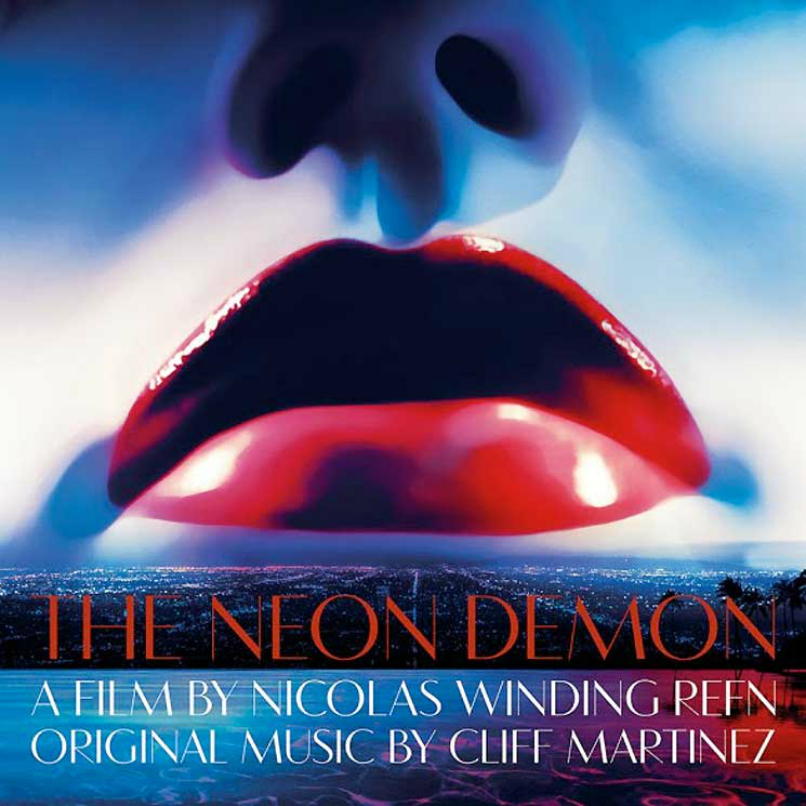I think the first movie soundtrack that made a real impact on me was The Exorcist. Nope, it wasn’t Star Wars, Superman, or Raiders of the Lost Ark. Hell, it wasn’t even Halloween. The first one that made a visceral impact on me was “Tubular Bells” by Mike Oldfield from The Exorcist S/T. As a stubborn little kid I avoided my parents warning about staying up and watching William Friedkin’s demonic possession shocker. It was on regular television so it had been edited, but that didn’t matter. That movie scared the hell out of me(no pun intended), and from that point on for the next few years every time I’d hear “Tubular Bells” all I could think about was a wrinkled Max Von Sydow dousing a torn, bloodied, and foul young Linda Blair with holy water. That song held onto those feelings and emotions. Even in the dead of summer it brought a fall chill and an ominous, creaking shadow.
That’s what the best movies scores do. They carry with them the essence of the film and bring them back to you like the best sense memory can. You can’t think think of Sergio Leone’s The Good, the Bad, and the Ugly without Ennio Morricone’s score. Or Taxi Driver without Bernard Herrmann’s gritty, jazz-inflected soundtrack. Of course John Williams and Danny Elfman needn’t be brought up as their genius, prowess, and importance goes without saying. There’s guys like Thomas Newman, James Newton Howard, Philip Glass, and Howard Shore that have also changed the landscape of film scoring as well. Fabio Frizzi and Walter Rizzati, lesser names in American film, reshaped the film score for Italian Giallo and Italian horror.
Another name is Cliff Martinez. Martinez has been quietly dominating indie film scores for well over 20 years, starting out with Steven Soderbergh and his debut film Sex, Lies, and Videotape. He’s scored films as diverse as Pump Up The Volume, Wicker Park, and The Lincoln Lawyer, but he made his name with Steven Soderbergh. His scores are exquisite and precise. They form to the needs of the film and story. There’s never any grandstanding with Martinez. He serves the film and the film alone, but in doing that over the years he’s developed his own voice as a composer. By the time Soderbergh’s excellent remake of Solaris rolled around he’d found this unique way of serving the film, while at the same time creating a standalone piece of art in his music. That score is magnificent, dark, beautiful, and stays with you. I feel from that point on he’s become one of the most important American composers working today.
Back in 2011 Martinez started a working relationship with Danish filmmaker Nicolas Winding Refn. Martinez created the darkly lit, synth-driven score to Refn’s Drive that has since turned into a blossoming artistic partnership. He’s scored the aforementioned Drive, as well as Refn’s Only God Forgives and the short doc about Refn himself titled My Life Directed by Nicolas Winding Refn, directed by Refn’s wife Live Corfixn. Their newest collaboration is The Neon Demon, and I believe it’s their best collaboration to date.
Have I seen The Neon Demon? No, not yet. So this review is solely based on the score as a standalone record and not how it jives with the film. After filling my head with this soundtrack for a couple weeks now I can say this one stands on its own as a record you can just put on and enjoy. It’s got all of Martinez’ hallmark moves; the dark synth, the dreamy sequences, and the fairy tale-like atmosphere that he’s brought to his previous Refn scores. The film is centered around a young woman that falls deep into the fashion and modeling scene and the gothic, sensual, and cutthroat world it can be. Of course with Refn it’s not just a cut and dry story. It’s steeped in symbolism, violent images, and sexually charged hallucinations, which all come through in Martinez’ score.
There are three tracks on this album that aren’t of Cliff Martinez’ doing. “Mine” by Sweet Tempest, “Demon Dance” by Julian Winding, and “Waving Goodbye” by Sia. “Mine” has a Garbage vibe to it, while “Waving Goodbye” is this big and shiny pop single that feels a little out of place on here(though within the film it may be a different story.) The standout is Winding’s “Demon Dance”. It’s got a dark club vibe to it; it pulsates and moves along like a more subdued Chemical Brothers or a slinkier Modeselektor track. For me, having not seen the film yet, it feels like the mood setter. It sets the stage for what’s to come.
Martinez is on-point as ever. His subtle moves musically once again feel like he’s setting the scene with his rhythmic pieces. “Neon Demon” opens the album like you’re beginning some dark and brooding fairy tale, while “What Are You” is reminiscent of his work on Only God Forgives. “Gold Paint Shoot” is full-on atmospheric synth that works into the dreamy “Take Off Your Shoes”. “Messenger Walks Among Us” is over six minutes in length and builds upon itself as it plays out. Piece after piece the nuance and subtlety of Cliff Martinez’ work shines through. His soundtracks are an escape, whether coupled with the film or not. The Neon Demon is one of his best works yet.
Cliff Martinez never overstates in his work. He lays it on the line but never overwhelms with too dramatic of flourishes. He takes the material at hand and creates a musical world that only enhances the story. I can only hope the Refn/Martinez partnership continues, as it’s a magical one.














No Comment